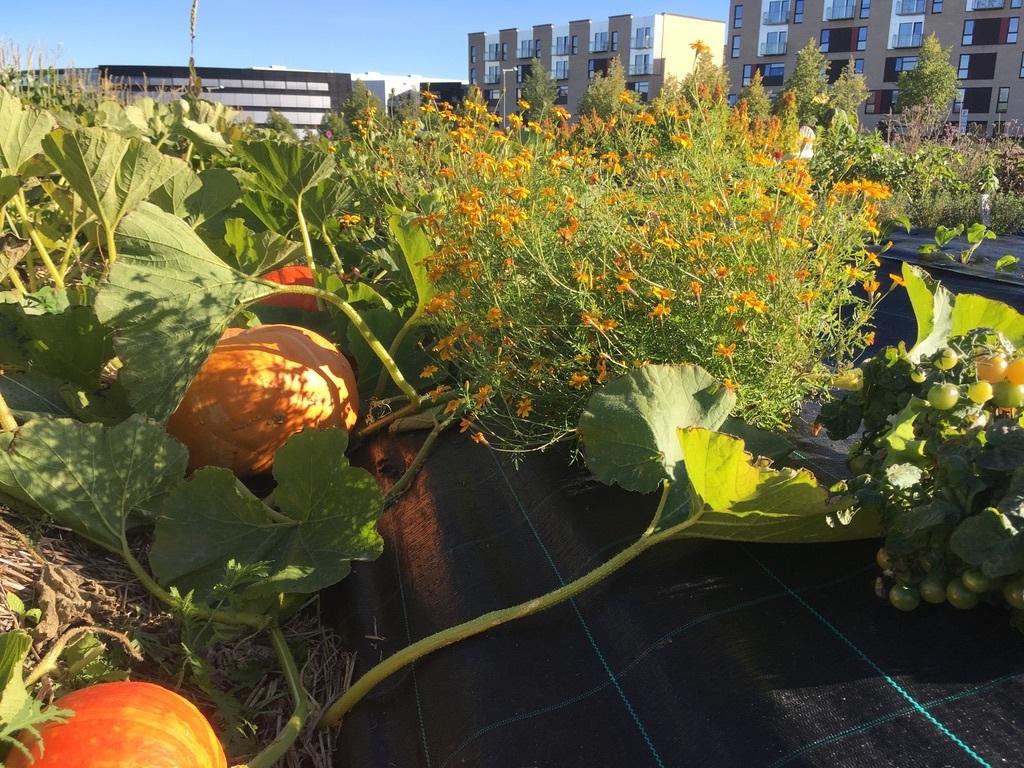Urban farming is a growing phenomenon, and this spring it is particularly relevant. Inflation, lack of fertilizers, transition from fossil fuels and the uncertain state of the world give new meanings to local food production. However, the benefits of urban farming go far beyond feeding people in cities. Agriculture can strengthen communities, provide a place for education, increase the appreciation of food production and even create job or training opportunities.
In the Science afternoon we had two interesting speakers: Nomaji’s architect and Aalto University researcher Caroline Moinel, who specializes in design solutions that offer refreshing, healthy and playful environments, and agroecologist and certified permaculture designer Joshua Finch.
Urban farming connects people and offers opportunities for food production and recreation. With the help of architecture, different spaces can be transformed into unique spaces, spaces that enliven the urban space in many ways, where urban agriculture is at the center.
Cities have plenty of potential spaces that could be converted to urban farming. There are many individual operators of urban agriculture in Helsinki, but their cooperation would need to be developed so that the operation could expand. The goal is that in the future, food would be seen as a service of equal value to, for example, daycare centers or schools. In this case, more premises would also be allocated to food production.
In the future, it would be important to enhance the cooperation between individual actors and create a decent network of farming operations. In addition to experts, ordinary people are needed to speak for the cause.
